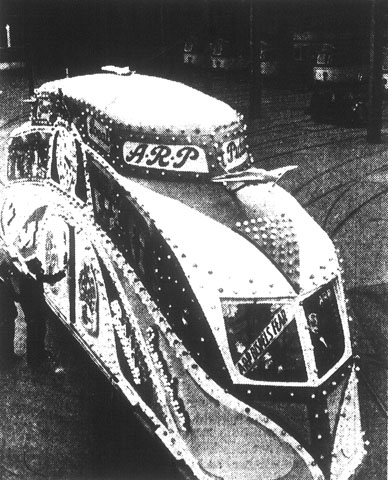On this day in 1952, the United States detonated the first hydrogen bomb, at Eniwetok Atoll in the Marsall Islands. Possibly not coincidentally, the October 2005 issue of History Today features an absorbing article by Geoffrey Best entitled "Winston Churchill, the H-Bomb and nuclear disarmament". I have a quibble though ...
Best quotes a 1953 speech by Churchill in the House of Commons, describing it as 'startlingly original' (p. 39):
These fearful scientific discoveries cast their shadow on every thoughtful mind, but nevertheless I believe that we are justified in feeling that there has been a diminution of tension and that the probabilities of another world war have diminished, or at least become more remote ... Indeed, I have sometimes the odd thought that the annihilating character of these agencies may bring an utterly unforeseeable security to mankind.
In other words, Churchill was an early proponent of MAD (mutually assured destruction). But there is nothing new under the Sun: compare Churchill's words with (for example) those of airpower pundit J.M. Spaight in 1938,
the nations may fear to unleash the monsters they have bred. That would be the greatest, the most welcome contribution that air power could make to the next war - that the next war never in fact comes.
It's exactly the same idea, that war was now so terrible that another one would destroy civilisation, and so paradoxically arming to the teeth actually makes the world safer, because no world leader could be that stupid. Of course, this didn't turn out to be the case in the 1930s, partly because bombing wasn't nearly as devastating as had been feared, but also because it wasn't actually tried. No country in 1939 had a bomber force large enough to deter other countries from going to war with it.
Anyway, to get back to Best's article, I don't think the quoted speech was particularly original of Churchill; he must have been exposed to similar arguments before 1939. But I'm sure that it's because the article was written for a popular audience, that it wasn't hedged about with enough caveats to suit a pedant like me - after all, Best was writing books before I was born! And he has a new one out too, Churchill and War, which looks to be required reading.
![]() This work is licensed under a Creative Commons Attribution-NonCommercial-NoDerivatives 4.0 International License.
Permissions beyond the scope of this license may be available at http://airminded.org/copyright/.
This work is licensed under a Creative Commons Attribution-NonCommercial-NoDerivatives 4.0 International License.
Permissions beyond the scope of this license may be available at http://airminded.org/copyright/.





Dan
But then Churchill was never hugely original... Or, if you'd rather, he had a great talent for spotting what had worked once and using it again. Ronald Hyam, reviewing Randolph Churchill's biography of the early years, compiled a great list of the occasions on which Churchill used the rhetorical device 'so much - so few' (about fifteen, including the opening of a dam) before 1940. It would be interesting to directly compare the language and syntax of Churchill on the Bomb (late 40s to early 60s) with Churchill on the bomber (1920s and 1930s). Has anyone done that?
Brett Holman
Post authorI haven't come across anything like that. I certainly am no expert on Churchill, but my impression is that in the 1920s he was more pessimistic about air war than he was in the 1930s. Eg, Powers in Strategy Without Slide-Rule notes a few gloomy statements from Churchill to the effect that mankind now had the means of its own destruction, whereas in the speeches published in Arms and the Covenant he stresses the possibility of air defence. (Even so, he says that 'the conquest of the air may mean the subjugation of mankind and the destruction of our civilization', p. 245.) I agree, a close reading of his rhetoric on bombing and on nuclear weapons might be very interesting!
Pingback:
Acquisitions | Airminded